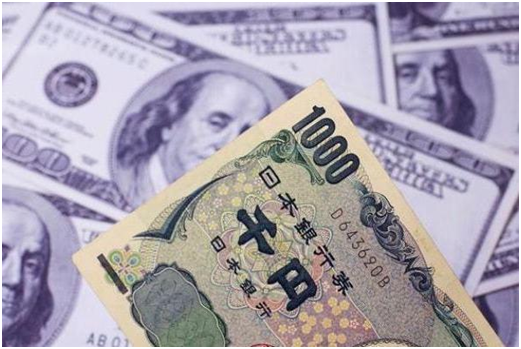
The Japanese currency has dropped sharply recently, and even returned to the level shortly after the collapse of Japan's famous "foam economy" in 1990. This may be bad news for the Japanese people, as the depreciation of the yen will increase import costs and put pressure on families. Japan's energy supply and food heavily rely on imports, which means inflation may rise.
Firstly, investors are selling the yen, which is one of the factors leading to the depreciation of the yen. In this case, the market will fall into a self actualization cycle. Due to currency depreciation, exporters are unwilling to convert foreign exchange earnings into Japanese yen, further reducing demand. However, significant depreciation is also influenced by policy reasons.
Secondly, the Bank of Japan ended its policy of maintaining benchmark interest rates below zero last month, raising short-term policy rates from -0.1% to between zero and 0.1%. This decision has attracted market attention, and the market expects further interest rate hikes. However, the Bank of Japan announced that it will maintain interest rate stability, indicating that further rate hikes will not occur immediately. This has triggered another round of selling off of the yen, putting greater pressure on the yen.
However, the low value of the Japanese yen for decades means that tourism revenue has increased more than in generations, leading to the prosperity of the industry. In addition to the US dollar, the Japanese yen has also hit multi-year lows against the euro, Australian dollar, and Chinese yuan, all of which are factors contributing to Japan's strong tourism market. However, domestic consumption remains a major weakness, as households are often net importers facing higher prices due to the weak yen.
Moreover, the underlying reason for the depreciation of the Japanese yen is the expectation of US economic growth and concerns that this will lead to long-term inflation. The recently released US GDP for the first quarter of this year confirms the steady growth of personal consumption and equipment investment. In the context of economic downturn in Europe and unstable situation in the Middle East, it is easy for global funds to invest in the US dollar. The depreciation of the Japanese yen is also a factor that large Japanese investors have decided to keep their cash abroad, as there can be better returns. The unusually strong US dollar has exacerbated this trend, which means that US investments and assets provide better returns for major financial institutions.
In recent years, the Japanese authorities have intervened to support the value of the currency, as the weakness of the yen has made achieving sustainable inflation goals complex, and strengthening the yen may help increase domestic consumption and local investment. Recently, the Japanese yen has risen sharply after briefly hitting a decades low, leading traders to suspect that Japan has intervened to support the yen exchange rate after weeks of threatening intervention. When asked if Tokyo authorities have intervened, Japan's highest currency diplomat, Masato Kanda, refused to comment.
Overall, the continuous depreciation of the Japanese yen will have a huge impact on the Japanese economy and society. On the positive side, it can increase the profits of Japanese export enterprises and overseas companies, while promoting the development of Japan's tourism industry. The depreciation of the yen can attract more foreign tourists to travel and consume in Japan.
However, the depreciation of the Japanese yen will lead to an increase in prices of energy, raw materials, etc., and inflation will face greater risks. The depreciation of the Japanese yen leads to an increase in imported commodity prices, and the consumer price index may also rise, resulting in a corresponding increase in the cost of living and a decrease in purchasing power for the entire society. The increase in import costs is passed on to sales prices, which may lead to a rise in commodity prices exceeding wage growth, which is not conducive to personal consumption.

報告顯示,中國電力投資加速增長,預計2024年電網基建投資將超過5300億元。
近日,市場迎來了一則引人注目的消息:工業巨頭3M公司(MMM.N)在本周五公布了其季度業績報告,隨後股價飆升至近兩年來的
最近,外媒給OpenAI算了筆賬,今年可能要血虧50億美元。
近日,巴黎奧運會和世界鐵人三項協會聯合發布了一項重大決定,宣布因塞納河水質污染問題,原定於近期進行的奧運會鐵人三項首次下
當地時間7月18日,法國巴黎發生了一起令人震驚的持刀襲警事件。
近期,一則重大消息在國際舞臺上引起軒然大波,馬來西亞宣布加入金磚國家。
調查發現,互聯網和智能手機的使用幹擾了韓國近五分之一學生的生活。